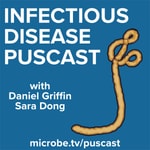The Science of Everything Podcast – Details, episodes & analysis
Podcast details
Technical and general information from the podcast's RSS feed.


Recent rankings
Latest chart positions across Apple Podcasts and Spotify rankings.
Apple Podcasts
🇨🇦 Canada - naturalSciences
14/08/2025#26🇬🇧 Great Britain - naturalSciences
14/08/2025#15🇺🇸 USA - naturalSciences
14/08/2025#33🇨🇦 Canada - naturalSciences
13/08/2025#58🇬🇧 Great Britain - naturalSciences
13/08/2025#15🇩🇪 Germany - naturalSciences
13/08/2025#99🇺🇸 USA - naturalSciences
13/08/2025#30🇨🇦 Canada - naturalSciences
12/08/2025#60🇬🇧 Great Britain - naturalSciences
12/08/2025#17🇩🇪 Germany - naturalSciences
12/08/2025#77
Spotify
🇬🇧 Great Britain - science
14/08/2025#23→🇺🇸 USA - science
14/08/2025#23→🇬🇧 Great Britain - science
13/08/2025#23→🇺🇸 USA - science
13/08/2025#23→🇬🇧 Great Britain - science
12/08/2025#23→🇺🇸 USA - science
12/08/2025#23→🇬🇧 Great Britain - science
11/08/2025#23↘🇺🇸 USA - science
11/08/2025#23→🇬🇧 Great Britain - science
10/08/2025#22→🇺🇸 USA - science
10/08/2025#23↗
Shared links between episodes and podcasts
Links found in episode descriptions and other podcasts that share them.
See all- http://dnapodcast.com/
347 shares
- https://www.patreon.com/jamesfodor
150 shares
RSS feed quality and score
Technical evaluation of the podcast's RSS feed quality and structure.
See allScore global : 37%
Publication history
Monthly episode publishing history over the past years.
Episode 147: Genetic Mutation and Repair
Episode 149
samedi 31 août 2024 • Duration 01:13:51
Here we survey of the causes and consequences of genetic mutation, including a discussion of mechanisms of endogenous and induced mutations, rates of mutation, types of single nucleotide mutations, and the phenotypic effects of mutation. We also discuss various mechanisms for detecting and repairing genetic mutations, including base excision repair, DNA mismatch repair, nucleotide excision repair, double strand break repair. We conclude with an examination of large-scale chromosomal changes, including deletions, duplications, inversions, and translocations, unequal crossing over, with a brief look at polypoidy in plants and aneuploidy in humans. Recommended pre-listening is Episodes 34 and 35: DNA Structure and Function, and Episode 44: Cell Division.
If you enjoyed the podcast please consider supporting the show by making a PayPal donation or becoming a Patreon supporter.
Episode 146: Mendelian Genetics and Inheritance
Episode 148
lundi 29 juillet 2024 • Duration 01:22:34
An introduction to classical Mendelian genetics, in which we discuss Mendel's experiments with peas and the laws of heredity that he discovered, including inheritance of one allele from each parent, the law of dominance, and the law of independent segregation. We then consider more complex cases of genetic inheritance, including sex-linked traits, incomplete dominance, codominance, and epistasis. The episode concludes with a discussion of quantitative traits determined by many genes, including how genetic variation is described, how sources of variance are identified using genome wide association studies, and the conceptual issues with defining heredity and separating the effects of genes from those of environment.
If you enjoyed the podcast please consider supporting the show by making a PayPal donation or becoming a Patreon supporter.
https://www.patreon.com/jamesfodor
https://www.paypal.me/ScienceofEverything
Check out out youtube channel! The Science of Everything Podcast - YouTube
Episode 138: Biochemistry and Metabolism
Episode 139
jeudi 31 août 2023 • Duration 59:20
A discussion of the metabolic pathways involved in breaking down proteins, carbohydrates, and lipids into simple components, extracting their energy, and building back up into more complex components needed for bodily function. We cover glycolysis, the citric acid cycle, lipolysis, beta oxidation, amino acid deamination, gluconeogenesis, fatty acid synthesis, and amino acid synthesis. Our overall focus is on the central role of acetyl-CoA and how the different metabolic pathways interact and intersect. Recommended pre-listening is Episode 18: Biochemistry Basics and Episode 75: Cellular Respiration.
If you enjoyed the podcast please consider supporting the show by making a PayPal donation or becoming a Patreon supporter.
Episode 71: Political Ideologies
Episode 71
vendredi 30 janvier 2015 • Duration 01:09:10
A social scientific discussion and comparison of some of the major political ideologies in the world today, beginning with an overview of the origins, meaning, and limitations of the 'left-right' political spectrum, and continuing with an analysis of the historical origin and key beliefs of conservatism, liberalism, socialism, communism, anarchism, fascism, and other nationalist movements.
Episode 70: Animal Diversity Part 2
Episode 70
mardi 30 décembre 2014 • Duration 49:35
Continuing from Episode 69, I explore the diversity of the mammals, looking at all the mammalian orders and their major families. Special focus is given to primates and particularly hominids, which are discussed at the species level.
If you enjoyed the podcast please consider supporting the show by making a paypal donation or becoming a patreon supporter.
Episode 69: Animal Diversity Part 1
Episode 69
lundi 29 décembre 2014 • Duration 01:04:47
In this episode we explore the diversity of the animal kingdom. I first discuss the history of taxonomy and give an overview of some key concepts such as morphological similarity, phylogenetic analysis, systematics, cladistics, binomial classification, and the taxonomic hierarchy. Then follows an explanation of the diversity of and relationships between the major animal phyla, including arthropods, echinoderms, molluscs, and many others, with special emphasis is given to the classes and orders in the phylum of chordata (vertebrates).
Episode 68: Protein Structure and Function
Episode 68
dimanche 30 novembre 2014 • Duration 54:11
An overview of the structure and function of proteins. Beginning with a discussion of some key research methods for studying proteins, including column chromatography, electrophoresis, and x-ray crystallography, we then discuss the structure of proteins, with a focus on secondary structure, motifs, structural domains, and quaternary structure. The episode concludes with a look at protein function, including protein folding, denaturation, enzymatic function, and allosteric regulation. Recommended pre-requisites are Episode 18: Biochemistry Basics, and Episode 10: The Cell. Episode 32: Light and Optics may also be helpful for the crystallography portion.
Episode 67: An Overview of Language Part 2
Episode 67
dimanche 23 novembre 2014 • Duration 41:03
Concluding the brief exploration of language begun last time, this episode examines semantics, including the distinction between sense and reference and different types of utterances, pragmatics, including conversational maxims and implicatures, and sociolinguistics, including prestige dialects and speech acts. Recommended pre-listening is Episode 66: An Overview of Language Part 1.
Episode 66: An Overview of Language Part 1
Episode 66
lundi 29 septembre 2014 • Duration 46:04
In this first of a two-part episode, I discuss the phenomenon of language. Here we consider phonetics, how sounds are produced and articulated, phonology, how different sounds are distinguished from one another and treated across different languages, morphology, how sounds are combined into units of meaning called morphemes, and in turn how these are combined into words, and syntax, how words are put together in accordance with particular rules to form sentences.
Episode 65: Money, Inflation, and Interest Rates
Episode 65
samedi 30 août 2014 • Duration 55:07
An introduction to the concept of money, including its uses, purpose, and a brief account of its history. I discuss the notion of money as a medium of exchange, a unit of account, and a store of value, and some of the properties that make particular goods useful as money. I also discuss various measures of the money supply, and briefly outline the difference between the monetary base and money created through the fractional reserve system. I discuss inflation, including its definition, causes, and effects on the economy, before concluding with a brief look at interest rates and exchange rates.









